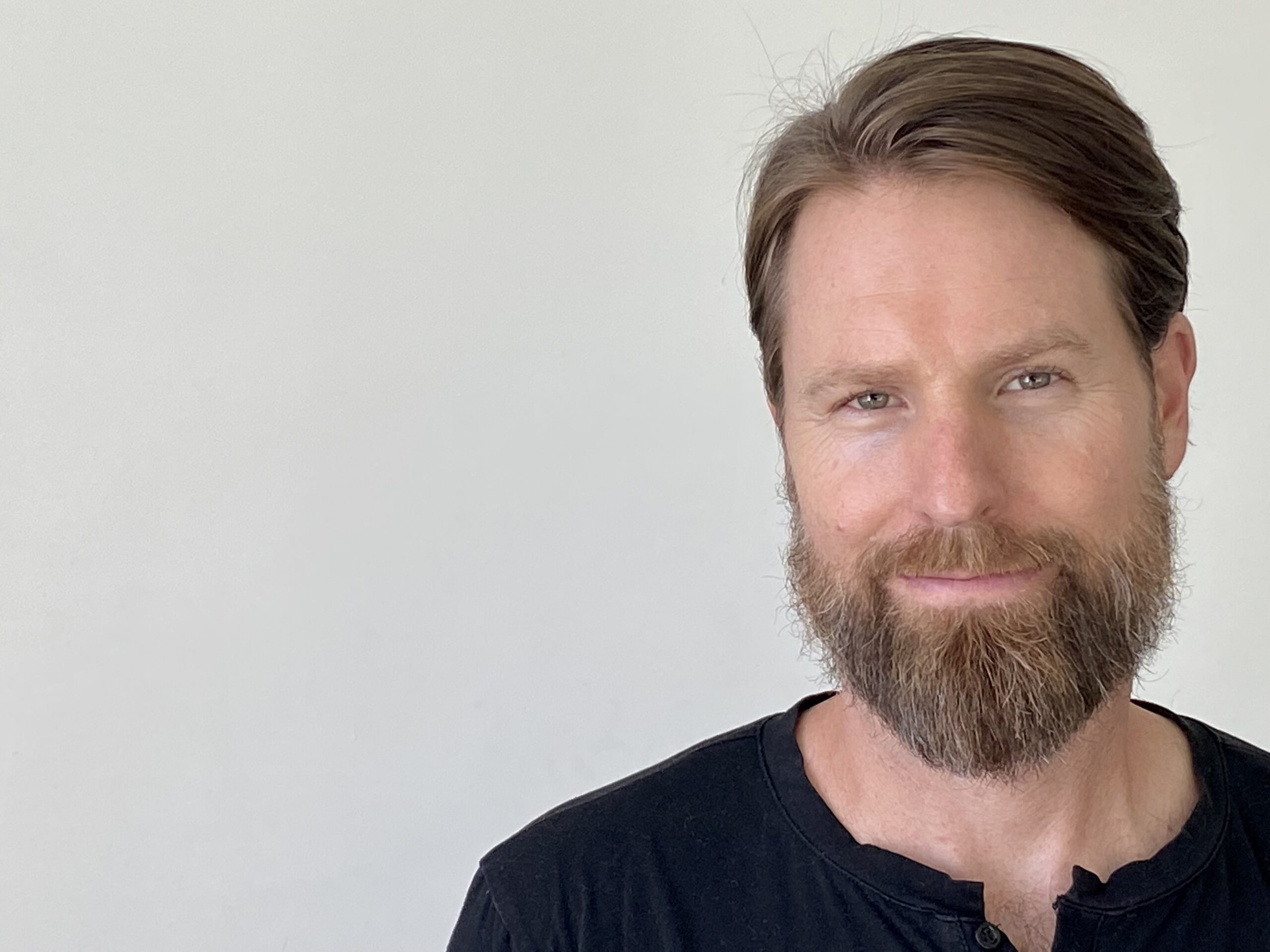Book Club featuring David Bahnsen
Our monthly Book Club features David Bahnsen and his book There’s No Free Lunch: 250 Economic Truths.
Listen to us On
About the Episode
On this edition of the Book Club, David Bahnsen talks about his book There’s No Free Lunch: 250 Economic Truths.
David is the Chief Investment Officer of the Bahnsen Group, an author and speaker.
For a copy of his book, click HERE
You can learn more about David at TheBahnsenGroup.com, Facebook, Twitter, Instagram, YouTube and LinkedIn.
If you’d like to take part in our discussion group, you can learn about it here as well as MoneyAlignmentAcademy.com.
Thanks, as always for listening! If you got some value and enjoyed the show, please leave us a review wherever you listen and subscribe as well.
You can learn more about us at MoneyAlignmentAcademy.com, Twitter, LinkedIn, Instagram, Pinterest, YouTube and Facebook or you’d like to be a guest on the show, contact George at [email protected].

George Grombacher
Lifeblood Host

David Bahnsen
Guest
Episode Transcript
george grombacher 0:00
Come on one lead, this is George G. And the time is right. Welcome to our monthly book club and welcome our author, strong and powerful David Bahnson. Welcome, David.
David Bahnsen 0:21
Well, thanks so much for having me. Good to be with you. excited to
george grombacher 0:24
have you on. David is the chief investment officer of the Bahnson group. So wealth management firm, his newest book is there’s no free lunch 250 economic truce. David, tell us a little about your personal life more about your work and why you do what you do?
David Bahnsen 0:42
Well, like you mentioned, I run a private wealth management firm, we manage about three and a half billion dollars for clients with offices in New York City, Newport Beach, Minneapolis, and soon to be Nashville, Tennessee. And in my spare time, I enjoy writing books that reflect the things I most care about, in ways that are hard for people to know. And I guess necessarily connect the dots, I do think the books I write are connected to what I do. This book on economic truths, certainly is ideological. And yet I think there’s profound application, and how people think about capital markets, how we go about investing money at my firm. But more than that, because economics is to me the study of human action. I think that the book has a lot to do with what people do in their lives to sort of fulfill their own dreams, pursue their own interest, and how that goes about making for civil society and social cooperation along the way. And so even though it’s not directly investment, Insight oriented, it has a lot to do with kind of the macro picture of how a society works or ought to work or is capable of working. I think we’re getting away from a lot of that. And the book to me is meant to bring us back to some of those basics.
george grombacher 2:08
I appreciate that. Was there a triggering point, a tipping point, a light bulb? Something get under your skin? What was what was the motivator for actually writing it?
David Bahnsen 2:19
Yeah, I guess you could argue that a light bulb got under my skin because there was a mix of there was a mix of sort of illumination, and yet at the same time irritation. Look, I don’t believe that a lot of socialists are going to read my book and say, Oh, I don’t want to be socialist anymore. It’s not necessarily intended to go change Bernie Sanders mind. I would love it. If that happens. I think that the foundational truths of the book serve as a very persuasive counterfactual to the socialist position. But my frustration actualized with a lot of people on the political right, of which I am one yet who I think are arguing for free enterprise, sometimes inconsistently, sometimes, illogically and often without a real foundation, they’re arguing more emotionally or impulsively, instead of with a kind of set of principles in mind. And of course, the funny thing about principles is that once they’re there and in place, you don’t really have the option of turning them on and off, as suits you. And I think that in the social dynamic we’re living through right now where people are worried about a lot of young people migrating away from free enterprise. I don’t think that we’re going to convince them with the arguments that people have been using the notion that free enterprise is a more efficient allocator of resources. Well, that is true. And I do believe that. But that isn’t persuasive to young people who have bought in emotionally to the idea that free markets don’t care about people or the free markets, create winners, but also create losers. I want us to make the argument that free markets have to do with freedom, and have to do with the dignity of the individual, and have to do with individual agency and responsibility. And so there are foundational reasons to believe in a free society. And those reasons are often being ignored. And that’s why I wrote the book.
george grombacher 4:35
Got it? I certainly appreciate that. Do you think so? I always struggle, I think okay, what I see on the internet is is is one thing, but what’s really happening in the real world is that different. So you believe that there are a lot of young folks out there who are who are falling into I don’t want to call it a trap. who are thinking this way?
David Bahnsen 5:03
Yeah, but you know, the thing is, is I don’t believe that there are a lot of young people who love socialism, I think that they might answer that way in a poll or a survey, or if their god forbid, Humanities professor at college ask them. But I think that their lead GID fondness for collectivism, or for some greater form of central planning in the economy is more a byproduct of a emotional distaste they have for what they understand about free enterprise. And so I try to contextualize that. And I think that if someone right now is roughly 30 years old, they were entering young adulthood right around the time of the financial crisis, and more or less the book ends of their experience, and they’re so far kind of limited taste of adulthood, is watching mom and dad almost lose their house, this total significant washout in the economy around excesses that took place. I happen. My very first book, by the way, crisis of responsibility was about the financial crisis. And I do make the argument that the excesses that took place to cause that crisis, which has been the key defining moment for young people and what they understand about the economy, but that those excesses were governmental, and Wall Street, but also mainstream. And so the narratives that have been written by the right that it was all a government’s fault, or the left that it was all Wall Street’s fault, I think both give Main Street a pass. And in my book, I suggested there was actually a significant cultural and moral failure, from Main Street in the crisis. But regardless, young people saw this awful event, they then go to college take on a quarter million dollars a debt for a degree that gets them a job back at the Starbucks, they were working out before they went to college, or an entry level job at a company that might have taken a long time to get, and it pays them okay, and they’ve worked hard, but they certainly can’t afford to buy a house. Because those houses that their parents almost lost 13 years ago, have now gone up in value so much that they’re totally unaffordable. And everyone sits around talking like that’s a great thing. And they have this massive student debt to carry. So my point is, contextually young people have not had a great experience in young economic life. Now, of course, I would argue that every single thing I just said, is not the fault of free enterprise. It is the fault of not enough free enterprise, of excessive regulation of excessive cost controls of a variety of circumstances. But I certainly do understand that from their vantage point, they see things that don’t add up. And there is a certain defense or tolerance of crony capitalism, that I think is poisoning the well for real free enterprise, and then causing people to look at a Bernie Sanders, who’s a very effective speech maker who’s his oratory skills, his passion, his authenticity, but pretty compelling, you then get an AOC on the younger side who’s fashionable and presentable, and, and has a effective way of reaching people with social media. And so these AOCs and Bernie’s become a little bit more shiny object ish than they would have been otherwise. When you combine that with the current context. I of course, find all of it awful. But I want to empathetically make the case for why the cause of human flourishing is actually going to die in the socialist context and the cause of human flourishing is going to live brightest in free and virtuous society. Well said.
george grombacher 9:06
So, I’ve been thinking a good amount lately, and I haven’t come up with anything necessarily. I’ve just been thinking about it, David, about narrative. And it seems like within the last maybe five, five years or so there’s been so much talk about telling your story and having narrative. And now that’s, that’s, that’s not that it’s displaced truth, but to degree it has, or maybe that’s what I’m thinking about. So when you write your book, there’s no free lunch 250 economic truths. How do you how do you think about truth? And then how do you because to tell a story, you need to be able to tell a narrative, right? So how do you balance that? How do you think about that?
David Bahnsen 9:47
I think you’re exactly right. I do believe though, that there’s a chicken or egg thing where
our current fondness for storytelling and for narratives, it’s rooted a little bit and some degree of narcissism, it’s rooted to some degree and a bit of attention span issues, but it is what it is. And and I’m not down on storytelling or narratives. But I prefer that when we communicate a truth via narrative, you know, I’m a Christian and and who would I be to criticize this? Because the whole point of the New Testament is Jesus spoke about in parables, you know, so So storytelling as a way of communicating a truth has a very long history and precedent and is an effective thing. But the point being, it’s rooted in the truth. And we don’t get to make up our own truth as we go. And that’s sort of the postmodern problem with narratives is that as long as it’s, it feels right to someone, there’s a sort of relativistic way in which storytelling gets done. And my view is that there needs to be 250 economic truths that sit at the foundation of how we go about telling the story. Now, what are the stories of free enterprise? Well, the stories are billions, 2 billion more people brought out of poverty in 25 years, that had been brought out in 2500 years. Okay, that that when free enterprise was introduced to certain parts of Africa and South America, that it took a minute to totally change the world and to bring the global extreme poverty rate from 50% to 10%. In my lifetime, and I’m, I’m not that old, yet. Those are stories, I think the story of vertical mobility, that one does not stay in the same income level or wealth level forever. I actually, for a number of reasons, maybe because I do find narcissism so unattractive, I generally hesitate using my own biography, I wrote all of crisis of responsibility and tried really hard to not have to delve into it. But um, you know, I become a wealthy individual and successful business owner, and started my adult life with 10 bucks in my pocket, no parents, no college education, and, and had quite a little journey. And I don’t say that to you, you might be the first podcast I’ve ever said that tears matter of fact, and I’ve done 1000s of interviews in the last 10 years. But the reason I bring it up is that there’s a story out of one who believes in the vertical, vertically mobile society, the aspirational society. And yet, I want those stories to be told out of a construct for a system that allows it, the risk and reward nature of enterprise, the, the allocation of resources, yes, but the ability to pursue one’s economic dreams that really come out of their life or dreams. And there are the Americans love this stuff. They love stories of rags to riches and, and overcoming adversity. But see, I don’t think those things exist in the same way. In a centrally planned economy. I think the central planning distorts dream fulfillment, I think distort, central planning distorts the types of narratives that would otherwise paint a really glorious picture of free enterprise. Like the life that I’ve been able to live, I don’t I don’t view it as a story about David Bahnson. I view it as a story about a country that can allow such things about an economic landscape that can allow such things. And then now, well beyond my story, my story gets to be about managing the financial affairs of hundreds of other people’s stories. And those stories are a daily inspiration of the magic of free markets, of the reality of the human person, that God made us with a dignity that we can overcome adversity in life that we can accomplish great things. And that we can be and we’re living in this era where everyone holds a phone in their hand. And they take for granted that there’s one little phone and you know, when you go back over time, all the matter, all the material construction that’s in that phone has existed for 1000s of years. And now we can get our recipes and our weather reports and communicate all over the world in five seconds with this device. What Why? Because of the knowledge and ideas that flow out of free enterprise and that when we are able to impute knowledge and ideas into physical matter, that we can do incredible things. And that is a net that needs to be told narratively, but we have to do it out of a foundation of the truth. that make up the I guess the principles that make up this system of thinking.
george grombacher 15:05
Nice. So break us or share with us how how the book is actually broken down.
David Bahnsen 15:13
So I did categorize it by I compartmentalize by different categories. But I put them in a certain sequence that was important to me to start off talking about human flourishing as the aim of economics, and move into human action is what economics is actually studying. And then kind of go through a number of different categories that are application oriented, you know, minimum wage laws, taxation, monetary policy. And the way I do it is I take a quote from a generally famous economist, or philosopher thinker, many of which are have been dead for 300 years, many of which are still with us today. But then I curated 250 quotes from various thinkers and economic leaders, and then add my own commentary on each and every one. And so essentially, it’s meant to be kind of a daily economic devotional reading, if you will. And I think I think it helps in bite size nuggets to give people access to those foundational truths.
george grombacher 16:22
So your recommendation on how I should read it?
David Bahnsen 16:29
Yeah, I like the idea of people reading it, you know, one or two a day, and then kind of having that time to reflect on it, think about it, capture it a little. I do happen to know there plenty people so far that have been reading it all the way through. And and you know that that is perfectly fine as well. But there’s something about it as a sort of de Li, it’s written in a way that I think someone who reads it, as a daily reflection might get a little more out of it.
george grombacher 16:56
Nice. I love it. Looking back, how how long did it take you to write?
David Bahnsen 17:04
The writing wasn’t the hard part of it was the curation of all of those quotes, I didn’t use a research assistant, I did it all myself. And that was a lot of work. To kind of have to sift through, you know, hundreds upon hundreds of different quotes, a lot of which I just gathered organically, I’d be reading something and and find a quote I loved and then kind of translate that over. And but yeah, I mean, it was a few months of putting my my, you know, pen to paper with my own commentary. But the collection of quotes was the more labor intensive part of it.
george grombacher 17:39
Yeah, yeah, I certainly do. Imagine. And do you? Do you enjoy writing?
David Bahnsen 17:45
I absolutely love writing. And the only thing that might be a close second is reading. And so either reading other people’s writing or writing my own writing, those are the two things I enjoy most in the world.
george grombacher 18:00
Yeah, you shared with me that you wake up early in the morning, do you have time that you block for reading and writing throughout the course of the day?
David Bahnsen 18:08
Yeah, that’s pretty much what I’m doing each morning from 345. Until you know, the day starts is a significant amount of reading in my world research is very important on the investment side. So that careful, concentrated and quiet time to be able to reflect on bottom up market research, or top down macro economic research. I try to read about 100 pages of market research every morning. And then I do a fair I write a daily investment commentary at The DC today.com. And by 6am, every morning, about 80% of it is written for the day. And then I write a weekly macro commentary called dividend cafe.com. And that I really focus on the writing and that’s a Friday morning exercise. So I’m a creature of habit. And that’s pretty much my routine.
george grombacher 19:06
I love it. I love it. 345. David, amen. Thank you so much for coming on. Where can people learn more about you? You gave us a couple of sites and where can they get a copy of there’s no free lunch 250 economic truths.
David Bahnsen 19:23
We created a special website for the book called no free lunch economics.com no free lunch economics.com. And not only do we keep all of the different, you know, podcast and video clips and media coverage, but there’s a lot of excerpts and blurbs from other, you know, mucky mucks about the book there. And on the right on the homepage is the link to go to either Amazon or Barnes and Noble or wherever someone wants to buy it. Simon Schuster as it has, you know, done a pretty good job getting the book at every bookstore as well. And so whether people are brick and mortar shoppers or Amazon or Barnes and Noble. It’s out there and the book website will give plenty of more information as well.
george grombacher 20:08
Excellent. Well, if you enjoyed this as much as I did so David, your appreciation and share today’s show with a friend who also appreciates good ideas, pick up a copy of, there’s no free lunch 250 economic truths wherever you buy your books, but go to no free lunch economics.com and find all the information there and also get signed up for his daily newsletter, his weekly newsletter and imagine what’s the firm’s website, David?
David Bahnsen 20:36
The Bahnson group.com And I’m sure they’ll see the spelling of Bahnsen in your show notes.
george grombacher 20:42
And that is the Bahnson Group B A HNSEN. Group calm. Thanks. Good David.
David Bahnsen 20:50
enjoyed it thoroughly. Thanks so much.
george grombacher 20:52
And until next time, keep fighting the good fight. We’re all in this together.
Transcribed by https://otter.ai
More Episodes
How Much Cash on Hand Should you Have?
A rule of thumb for both businesses and individuals is to have at least three to six months’ worth of expenses in cash on hand. For a CFO (Chief Financial Officer), cash can be as important as profit. Without cash, business operations won’t be able to...
Saving and Investing Like a CFO
Saving and investing are two of the most important things we do with our money. There’s a lot we can learn from how Chief Financial Officers (CFOs) do it. It’s a CFOs job to invest corporate assets (or decide not to). They must manage today’s financial needs and...
Taking a Business-Like Approach to Your Time Horizon
The Securities and Exchange Commission defines time horizon as, “Your time horizon is the number of months, years, or decades you need to invest to achieve your financial goal.” You and I have enough time to do most everything we want. But we don’t have time to waste....
A Business-Like Approach to the Financial Planning Process
Taking a business-like approach to the financial planning process can help get you where you want to go with money. Having the right strategy and planning are integral to the success of a business. The CEO works to set the organization’s goals, decide on the...
How to Decrease Overhead and Increase Profit in Your Personal Finances
Businesses and individuals alike are always interested in improving their bottom line. It can be accomplished in many ways, but focusing on decreasing overhead, and increasing profit are excellent starting points. For businesses, revenue minus costs equals...
How to Build Your Financial Foundation
To become successful, you need a strong financial foundation. To do that, there are a lot of financial best practices individuals can borrow from an organization’s CFO. A CFO stewards the assets of an organization, accessing and reducing risks, maintaining...
The Goal Setting Process for Real Results
Businesses engage in a formal and organized goal-setting process. It involves strategic planning that takes into consideration time horizon, opportunity, and threats. This process demands constant updates. Do you set goals? Do you follow a goal-setting process? ...
What Living In Alignment Means and How to Do It
There’s immense value in living in alignment. You’ve heard the saying, “Stand for something, or fall for anything.” When you’re clear on what your personal mission, values, and goals are, you know what you stand for, and what you stand against. You have clarity around...
Why Have a Personal Mission Statement and How to Write Yours
There’s a lot of value in having a personal mission statement. One major benefit is that it helps you prioritize your life. Why is this important? Well, either you live by priority, or you live by pressure. Have you ever known someone who's constantly...
Join the show.
Interested in being on the show? Tell me a little bit more about you and what you’d like to talk about!














